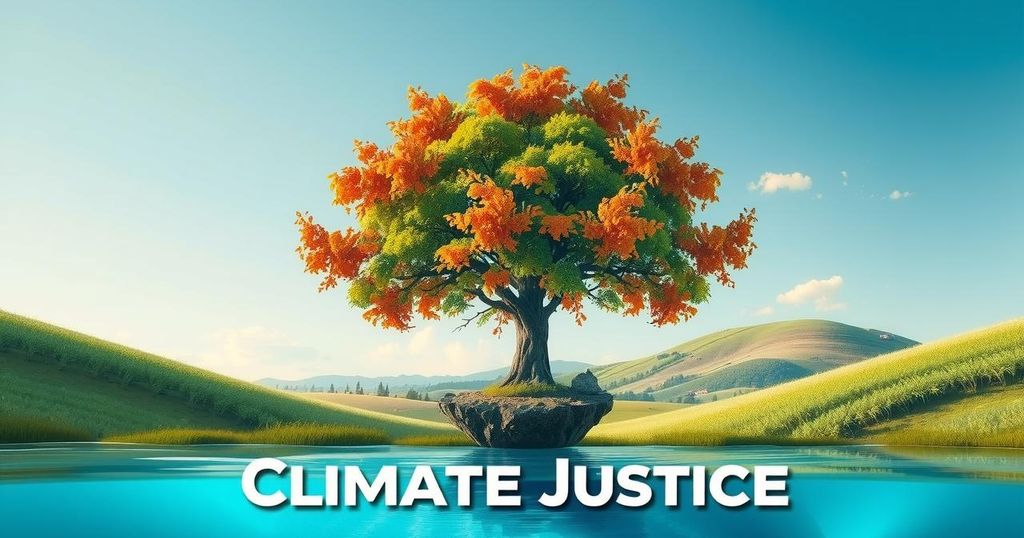The article discusses the interplay between climate justice and national self-interest, emphasizing that wealthy nations, particularly the U.S., have a moral obligation to assist poorer nations affected by climate change. Despite trends toward isolationism, addressing these risks can yield benefits for the U.S. economy and diplomacy, suggesting that taking action is both just and prudent.
Wealthy nations, particularly the United States, face a pivotal choice regarding climate change: to act justly and, in return, reap significant benefits. Currently, the administration’s stance has leaned away from this moral obligation, proceeding to dismantle initiatives aimed at curbing greenhouse gas emissions. This includes the withdrawal from the Paris climate agreement, which unites numerous countries in the struggle against climate change.
The United States historically contributes approximately 22 percent of total greenhouse gas emissions, while China accounts for about 14 percent. Presently, China leads with 30 percent of annual emissions, compared to the United States at 13 percent. As the effects of climate change escalate, vulnerable nations, particularly low-income countries, disproportionately suffer the consequences, as indicated by projections that suggest significantly greater economic losses for those nations compared to wealthier counterparts.
High-emission countries, having benefitted economically from their emissions, should acknowledge the resultant risks imposed on poorer nations. Ethical considerations must guide their actions, recognizing that nations responsible for these risks have a moral duty to assist those affected. While prioritizing national interests is essential for officials, promoting justice through support for vulnerable populations is equally crucial.
Mitigation measures are vital; however, there is an urgent need to enhance resilience to climate threats like extreme weather events. Assisting vulnerable nations is not only a matter of justice but also serves American interests. A interconnected world complicates the idea of isolation; problems in one region inevitably affect others, including issues related to migration.
Furthermore, the competition with nations such as China and Russia further emphasizes the need for the United States to establish strong partnerships globally. These alliances can yield substantial benefits for American businesses and interests. Therefore, addressing climate risks in poorer nations transcends mere charity, representing a fundamental aspect of justice that can simultaneously enhance the U.S. standing and influence in the international arena.
In summary, the United States must consider its moral and self-interested imperatives regarding climate change. By aiding vulnerable nations and acknowledging the injustices they face due to climate change, the U.S. can fulfill its ethical obligations while benefiting from enhanced global relationships. Promoting resilience against climate risks is not only a humanitarian effort but also a strategic decision that aligns with national interests.
Original Source: www.bostonglobe.com






